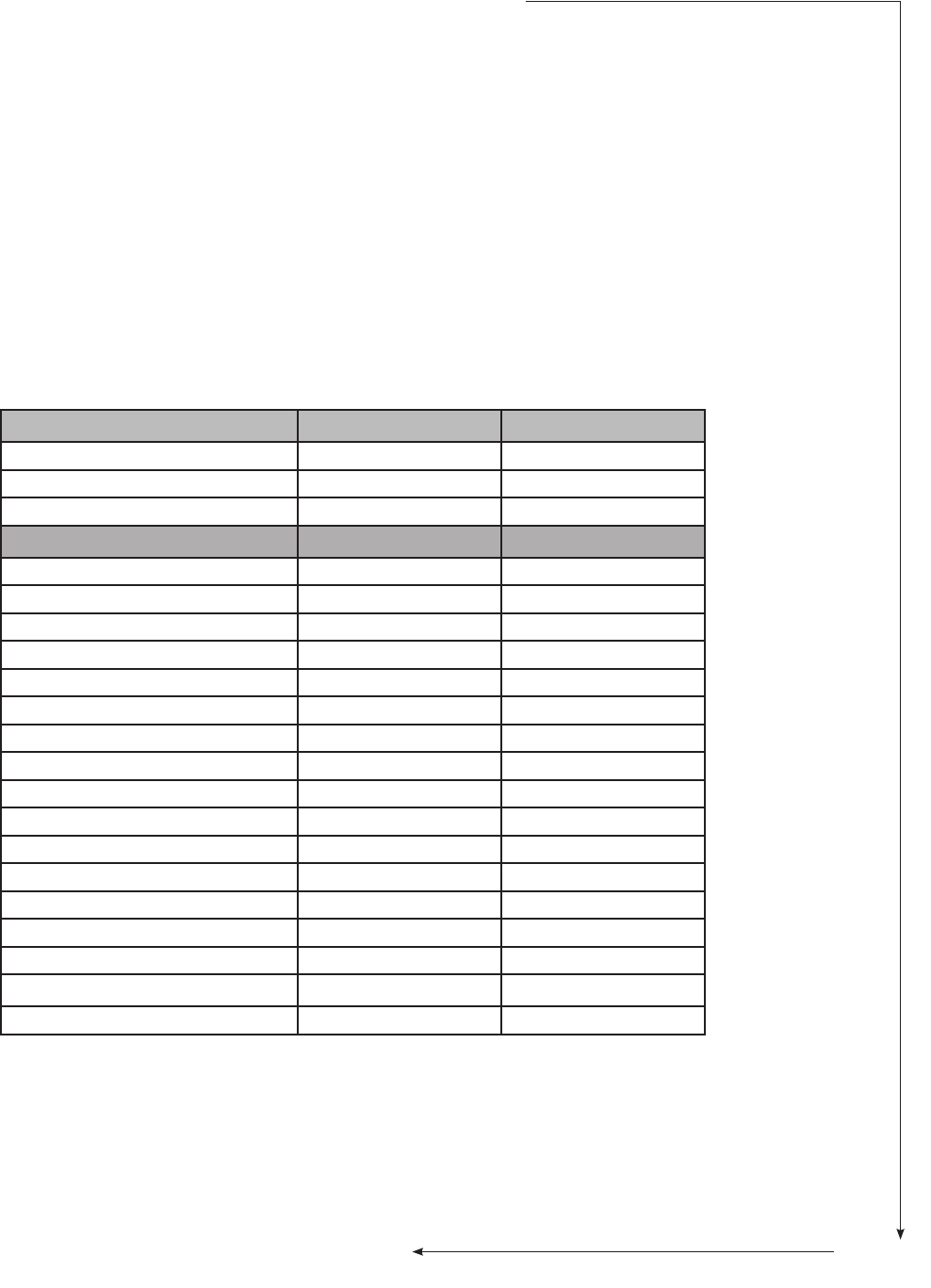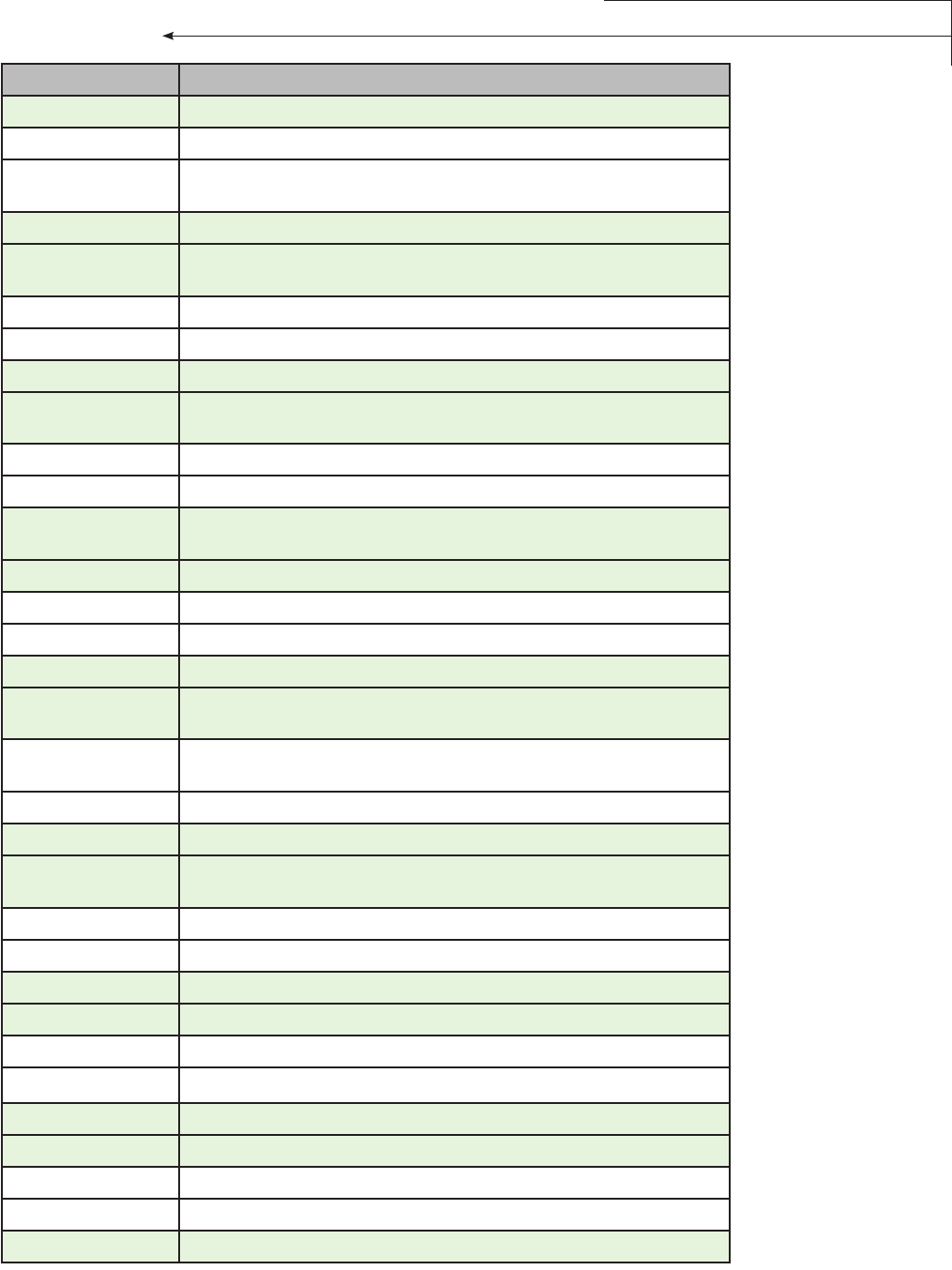
MEJO 180-002
FOUNDATIONS IN PHOTOJOURNALISM
chadstevens
@
unc.edu
Overburden Documentary
Farmsteaders Documentary
u
Zoom Office Hours:
T - 1:00-2:30
Or by appointment.
u
National Geographic
Ultimate Beginner’s
Guide to Great
Photography
u
This syllabus is flexible.
Be prepared for change.
u
is vital
to the success of this class.
There will be demonstrations
that cannot be redone.
BE ON TIME.
u
u
Course Objectives
1.To help you learn how to effectively use your 35mm cameras.
2. To help you understand what makes a good photograph in terms of (1) content;
(2) composition/aesthetics; (3) technical quality.
3. To help you acquire and develop the intellectual, technical and analytical skills
of visual journalism communication.
4. To help you understand the all-important contribution of the idea to the photo-
graph - the critical element that separates the picture taker from the picture maker.
5) To mindfully recognize one’s own privilege and to acknowledge and address
issues of representation in the journalism industry.
Major topics we will cover...
u Camera mechanics
u Equivalent Exposure
u Idea generation
u Caption Writing
u Depth of field
u Light
u Composition/Design
In addition to these subjects, guest speakers may visit to talk about their work in
the communications photography field. Some flexibility in the schedule has been
worked in to accommodate speakers and other events that may arise.
The key to success in this class is consistency. Keep working and working hard.
Push the boundaries. And keep up with all assignments. This is a labor-intensive
course. Learning through action.
CLASS AND COVID
We are officially designated an in-person learning class, but we will approach
this semester with flexibility. I’ll update the schedule if we need to access other
platforms for class. I will utilize Sakai for scheduling, supporting materials and
assignment turn-ins and peer and instructor feedback.
“You need a heart, an eye, a mind, and a magic box.”
“What you do makes a difference, and you have to decide what kind of difference you want to make.”
–
u
Portraits
u
Picture Stories
u
Story research and proposal
u
Action/Motion
u
Ethics, Laws
u
Building a beginning portfolio
u
Photojournalism History

FOUNDATIONS IN PHOTOJOURNALISM
Fieldwork: We are here to tell stories, and with flexibility and thoughtfulness, we will find ways in which to tell the best
visual stories we can - given the parameters put on us because of the pandemic. I want to give you the freedom to tell
the kind of story you want to tell that is within your comfort zone. That means we are going to have options on how we
approach the final project.
Communication
It is important to note that communication is key to in-person and online learning. You will be expected to maintain
consistent communication with your classmates and the instructor throughout the duration of the course - as detailed in
Lessons, Zoom or in-person meetings.
Sakai Lessons: You’ll find the the structure of the course in the Lessons section of Sakai. Within the Lessons you will
find all of the reading, links to complimentary content, which you are expected to explore, assignments and discussion
points. You will need to complete all the sections in all of the Lessons.
Sakai Forums: We will use the Forum environment to post, submit assignments, respond to assignments and offer feed-
back.
Messages: My email at [email protected]. My hours will be flexible, and I will respond as quickly as possible.
Participation
You will be required to participate in all assignments and critiques, whether in person or on Sakai forums (when
assigned). Your participation will be evaluated on your consistent, thoughtful contribution to class discussions (in class
or on Sakai) and assignments. Deadlines are serious, and you are expected to meet all deadlines or have points deducted.
You must have a voice in this class and contribute to this community of learners.
Zoom Protocol
We will have some course meetings via Zoom. The key to having an engaged class is participation from all of us. Just as
when we meet in person, the class is always better when everyone participates, the same is true for our Zoom class meet-
ings. If possible, I’d like everyone to have their video on during our Zoom classes - with exceptions of course. Just like an
in-person class, you may need to leave the room. All good. You can turn off video if you need to take a moment.
You must go here to sign up and access your pro account: https://unc.zoom.us/
If you have questions, you can let me know, but you may have more efficient results by contacting IT here: https://help.
unc.edu/sp
Mask Use
All enrolled students are required to wear a mask covering your mouth and nose at all times in our classroom. This re-
quirement is to protect our educational community -- your classmates and me – as we learn together. If you choose not to
wear a mask, or wear it improperly, I will ask you to leave immediately, and I will submit a report to the Ofce of Student
Conduct. At that point you will be disenrolled from this course for the protection of our educational community. Students
who have an authorized accommodation from Accessibility Resources and Service have an exception. For additional
information, see https://carolinatogether.unc.edu/university-guidelines-for-facemasks/.
Photography Assignments
All assignments are due at the beginning of class on their due date. You must be present to receive a grade. Any assign-
ments turned in after that will receive a grade of 0. You will have the opportunity to reshoot two of your assignments.

Weekly photography assignments receive the most weight toward your final grade. Take them seriously. One zero
on these assignments could be disastrous. If you must miss a class (for legitimate excuses - please communicate)
you must turn in your assignment the day it is due to receive a grade.
Each assignment will be discussed in class and critiqued (See Critiques below). When appropriate, a handout will
be provided outlining the requirements for the assignment. And, when needed, practical demonstrations will be per-
formed to guide you along the way.
Important – no photographs taken before the semester begins will be accepted. You cannot begin shooting an assign-
ment until I give out the assignment in class. Also, this is a documentary photography class. That means - except for
still lifes and portraits - you may not “set up” or “stage” pictures. No “posing” subjects.
Exercises and Assignments
Required Equipment and Materials
• 35mm Single Lens Reflex (SLR) digital camera that allows you to manually set the f/stops and shutter speeds • A
lens (a 50 mm is a good and relatively cheap general lens, but others are possible) • Portable Harddrive to archive
your photography • Camera Flash Card, at least 16 GB (these are not available from Checkout)
FOUNDATIONS IN PHOTOJOURNALISM
Exercises Possible Points
01 Vision In Class Credit only
02 Depth of Field, Motion and Flash In Class Credit only
Assignments
03 F22 In Field Credit only
04 Composition In Field 100
05 Light In Field 100
06 Moment In Field 100
07 Creativity Package In Field 100
08 Video Sequence In Field 100
Photographer Presentation In Class 100
Final Project 350 - Total
09 Story Ideas and Proposal 100
09 Story Edit 50
09 Final Picture Story 200
Participation - Critiques
50
page three
DETAILS COUNT

FOUNDATIONS IN PHOTOJOURNALISM
While enrolled in this course you will have access to a Canon Rebel kit available through the MEJO equipment
room. The Equipment Room is located in the Park Library, 2d floor of Carroll Hall. The pandemic has forced our
school to change the rental process.
You will reserver your equipment through Connect2 at this link: https://equipmentroom.mj.unc.edu/
Find gear instruction manuals here: https://guides.lib.unc.edu/equipment-room/instruction-manuals
If you have your own, let me know. I’d like to be sure it works for class.
PhotoNights
PhotoNight is a monthly speaker series that is held usually on the last Tuesday of every month. Presentations are
from 7:30 p.m. – 9:00 p.m. Our student photography organization, NPPA, organizes the event. It would be great if
you want to join! I’ll give you the details for each PhotoNight with as much advance notice as I can. Attendance is
highly encouraged and sometimes comes with extra credit.
Critiques
Our goal: to discover what makes a good picture, to uncover the highs and lows, the good and bad, to prepare you
to go out and make images that communicate the next time. Critiques are essential to growth. I want involvement
from everyone and the critiques need to be constructive.
One reminder about critiques in class. Remember, you are not your work. You are a full, holistic being, and the
work you create is only one facet of who you are, so by separating your self worth from your work can lead to
productive feedback sessions. There is fine line between defending your position and making excuses. Don’t be so
connected to your work that you lose sight of how it could be better.
You will complete three exercises, six assignments, a written picture story proposal, a photographer presentation,
and your final project... The Picture Story. Each assignment will have written captions and a written self-evaluation.
page four
“If one does not lie back and sum up and say to the
moment, this very moment, stay you are so fair,
one ever says that enough.”

FOUNDATIONS IN PHOTOJOURNALISM
Grade Determination
The grading will be rigorous, but I will do my best to match my grading to your learning. You will turn in full
shoots, and it will be quite easy to see how much effort you put into the assignment. How much you experiment,
explore and try will be considered in the grading. The best way to get a good grade in this class is to invest consid-
erable time and effort on each assignment. A sure way to get a low grade is to wait to the last minute and not give
the assignment - not to mention the people you are photographing - the attention deserved.
Grading and feedback will be done with the help of our Teaching Assistant. We will do our best to be fair and accu-
rate, but to do this there must be some very specific guidelines and boundaries. Here they are:
1) Assignments are due at the minute class begins (submitted via Saka by the designated time) on the due date!
2) Any assignment not turned in will receive zero points.
3) Class participation is critical to success in this course.
Although this is a subjective world (how do you define quality?), there still must be a final say, and that is
where we come in. Your work will be evaluated on image quality, technical skills, content, ethics and aesthetics.
Remember this is a journalism course, and the key is communication and connection. We will define all of this dur-
ing class.
Grades can get in the way of deep learning, and true learning requires an environment in which one can experiment and
make mistakes (If you’re going to fail, fail creatively!) Recognizing this, you will have the opportunity to reshoot two of
your assignments. These will be due in the last few weeks of class. See the semester schedule.
Quizzes
There may quizzes in this class covering information discussed in class and from your text. These quizzes will be
given at the beginning of class and cannot be made up. I will not always announce the quizzes, so you need to be
prepare yourself for each class by going over the class/lab materials and readings from the previous weeks. Knowing
and understanding this material will better prepare you to make better pictures.
Inclusive and Accepting Space
First of all, everyone is welcome here. Bigotry and sexism are not welcome here. We may have difficult discussions
in this class, and as that happens I want everyone to be mindful of the power of words and how they can impact
others. Simply, be thoughtful of others and be aware of your own privilege.
Professional courtesy and sensitivity are especially important with respect to individuals and topics dealing with
differences of race, culture, religion, politics, sexual orientation, gender, gender variance, and nationalities. Class
rosters are provided to the instructor with the student’s legal name. I will gladly honor your request to address you
by an alternate name or gender pronoun. Please advise me of this preference early in the semester so that I may
make appropriate changes to my records. My preferred pronouns are he/him/his.
ARS
The University of North Carolina at Chapel Hill facilitates the implementation of reasonable accommodations,
including resources and services, for students with disabilities, chronic medical conditions, a temporary disability or
FOUNDATIONS IN PHOTOJOURNALISM
pregnancy complications resulting in barriers to fully accessing University courses, programs and activities.
Accommodations are determined through the Ofce of Accessibility Resources and Service (ARS) for individuals
with documented qualifying disabilities in accordance with applicable state and federal laws. See the ARS Website
for contact information: https://ars.unc.edu or email [email protected].
Counseling and Psychological Services
CAPS is strongly committed to addressing the mental health needs of a diverse student body through timely access
to consultation and connection to clinically appropriate services, whether for short or long-term needs. Go to their
website: https://caps.unc.edu/ or visit their facilities on the third oor of the Campus Health Services building for a
walk-in evaluation to learn more.
Diversity
I strive to make this classroom an inclusive space for all students. Please let me know if there is anything I can do
to improve; I appreciate any suggestions. More broadly, our school has adopted diversity and inclusion mission and
vision statements with accompanying goals. These complement the University policy on prohibiting harrassment
and discrimination. In summary, UNC is committed to providing an inclusive and welcoming environment for all
members of our community and does not discriminate in offering access to its educational programs and activities
on the basis of age, gender, race, color, national origin, religion, creed, disability, veteran’s status, sexual orienta-
tion, gender identity, or gender expression. The Dean of Students (Suite 1106, Student Academic Services Building,
CB# 5100, 450 Ridge Road, Chapel Hill, NC 27599-5100 or [919] 966-4042) has been designated to handle inqui-
ries regarding the University’s nondiscrimination policies.
ACEJMC
The School of Media and Journalism’s accrediting body outlines a number of values you should be aware of and
competencies you should be able to demonstrate by the time you graduate from our program. Learn more here:
http://www2.ku.edu/~acejmc/PROGRAM/PRINCIPLES.SHTML#vals&comps
No single course could possibly give you all of these values and competencies; but collectively, our classes are
designed to build your abilities in each of these areas. In this class, we will address a number of the values and
competencies, with special emphasis on:
*understand concepts and apply theories in the use and presentation of images and information;
*demonstrate an understanding of professional ethical principles and work ethically in pursuit of truth, accu-
racy, fairness and diversity;
*think critically, creatively and independently;
*write correctly and clearly in forms and styles appropriate for the communications professions, audiences and
purposes they serve;
*critically evaluate their own work and that of others for accuracy and fairness, clarity, appropriate style and
grammatical correctness;
*apply tools and technologies appropriate for the communications professions in which they work.

FOUNDATIONS IN PHOTOJOURNALISM
Class Topics Platform
In-person
In-person
-
In-person
In-person
In-person
GUEST PANEL: Visual Reporting in a Pandemic Zoom
In-person
In-person
In-person
In-person
In-person
In-person
In-person
Flash Tutorial
In-person
Emily Rhyne, New York Times
Proposal
Zoom
In-person
In-person
In-person
Photographer Presentations Zoom
Photographer Presentations Zoom
In-person
In-person
In-Person
ATTENDANCE
University Policy:
No right or privilege exists that permits a student to be absent from any class meetings, except for these University Ap-
proved Absences:
Authorized University activities
Disability/religious observance/pregnancy, as required by law and approved by Accessibility Resources and Service and/
or the Equal Opportunity and Compliance Ofce (EOC)
Signicant health condition and/or personal/family emergency as approved by the Ofce of the Dean of Students, Gender
Violence Service Coordinators, and/or the Equal Opportunity and Compliance Ofce (EOC).
Class Policy:
Instructors may work with students to meet attendance needs that do not fall within University approved absences. For
situations when an absence is not University approved (e.g., a job interview or club activity), instructors determine their
own approach to missed classes and make-up assessments and assignments.
The field of journalism is requires we give it everything we can. The rewards are great, but the demands are high. It is criti-
cal that you attend every class. You CANNOT miss a class in order to shoot an assignment. You must be in class to present
your work for critique. Turning in an assignment on the server does not count as a turn-in. Part of your completion of the
assignment is the critique. You will be allowed 2 un-excused absences; after that 2 percentage points will be deducted from
your FINAL GRADE. If your semester average is 91% and you miss 3 classes, your final average would be 89%. Etcetera.
Use your 2 wisely. Please communicate with me if circumstances arise that require you to miss class.
Please communicate with me early about potential absences. Please be aware that you are bound by the Honor Code when
making a request for a University approved absence.
POLICY ON NON-DISCRIMINATION
The University is committed to providing an inclusive and welcoming environment for all members of our community
and to ensuring that educational and employment decisions are based on individuals’ abilities and qualications. Consis-
tent with this principle and applicable laws, the University’s Policy Statement on Non-Discrimination offers access to its
educational programs and activities as well as employment terms and conditions without respect to race, color, gender,
national origin, age, religion, creed, genetic information, disability, veteran’s status, sexual orientation, gender identity or
gender expression. Such a policy ensures that only relevant factors are considered and that equitable and consistent stan-
dards of conduct and performance are applied.
If you are experiencing harassment or discrimination, you can seek assistance and le a report through the Report and
Response Coordinators (see contact info at safe.unc.edu) or the Equal Opportunity and Compliance Ofce, or online to
the EOC at https://eoc.unc.edu/report-an-incident/.
TITLE IX
Any student who is impacted by discrimination, harassment, interpersonal (relationship) violence, sexual violence, sexual
exploitation, or stalking is encouraged to seek resources on campus or in the community. Reports can be made online to
the EOC at https://eoc.unc.edu/report-an-incident/. Please contact the University’s Title IX Coordinator (Elizabeth Hall,
interim – [email protected]), Report and Response Coordinators in the Equal Opportunity and Compliance Of-
ce ([email protected]), Counseling and Psychological Services (condential), or the Gender Violence Services
Coordinators ([email protected]; condential) to discuss your specic needs. Additional resources are available at safe.unc.
edu.
HONOR CODE
I expect that each student will conduct himself or herself within the guidelines of the University honor system (http://hon-
or.unc.edu). All academic work should be done with the high levels of honesty and integrity that this University demands.
You are expected to produce your own work in this class. If you have any questions about your responsibility or your
instructor’s responsibility as a faculty member under the Honor Code, please see the course instructor or Senior Associ-
ate Dean C. A. Tuggle, or you may speak with a representative of the Student Attorney Ofce or the Ofce of the Dean of
Students.
SYLLABUS CHANGES
The professor reserves the right to make changes to the syllabus, including project due dates and test dates. These changes
will be announced as early as possible.
